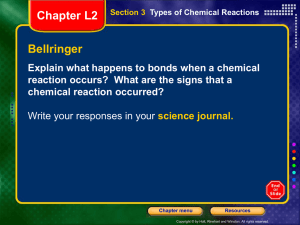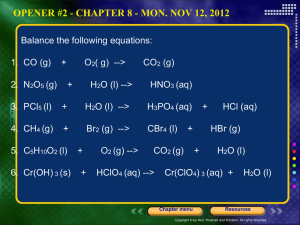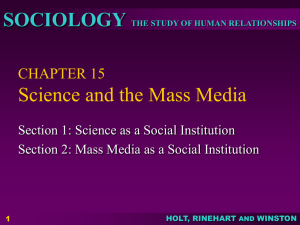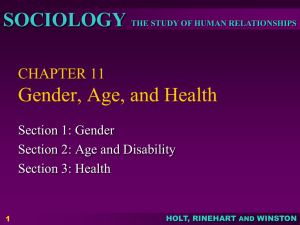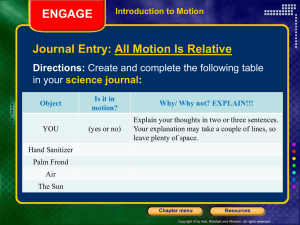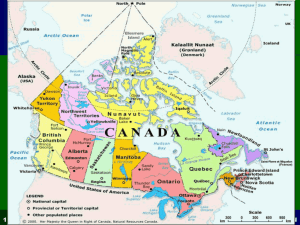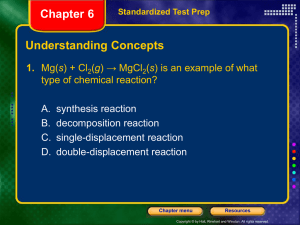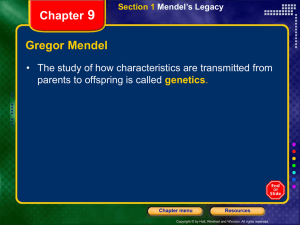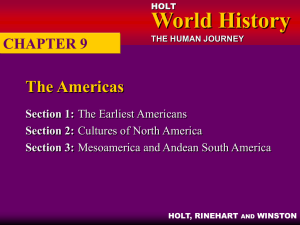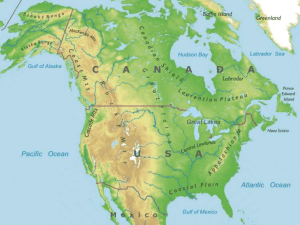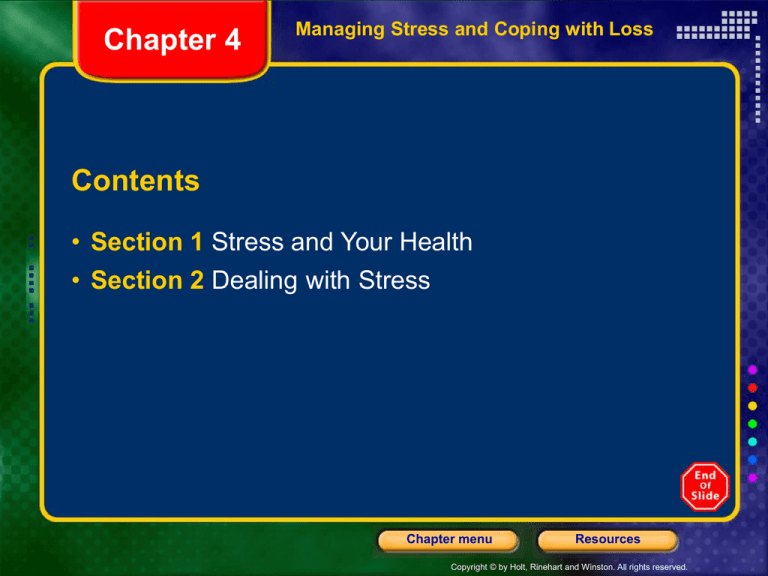
Chapter 4
Managing Stress and Coping with Loss
Contents
• Section 1 Stress and Your Health
• Section 2 Dealing with Stress
Chapter menu
Resources
Copyright © by Holt, Rinehart and Winston. All rights reserved.
Chapter 4
Section 1 Stress and Your Health
Objectives
•
•
•
•
Describe five different causes of stress.
Describe the body’s physical response to stress.
Differentiate between positive and negative stress.
Describe how stress can make you sick.
Chapter menu
Resources
Copyright © by Holt, Rinehart and Winston. All rights reserved.
Chapter 4
Section 1 Stress and Your Health
Bellringer
• Identify three situations that can cause you stress on
a daily basis.
Chapter menu
Resources
Copyright © by Holt, Rinehart and Winston. All rights reserved.
Chapter 4
Section 1 Stress and Your Health
Stress: The body’s and mind’s response to a
demand or stressor. Physical and Mental
What Causes Stress?: Stressors
• Environmental stressors are conditions or events
in your physical environment that cause you stress.
• Biological stressors are conditions that make it
difficult for your body to take part in daily activities.
Chapter menu
Resources
Copyright © by Holt, Rinehart and Winston. All rights reserved.
Chapter 4
Section 1 Stress and Your Health
What Causes Stress?
• Thinking stressors can be any type of mental
challenge.
• Behavioral stressors are unhealthy behaviors that
cause stress.
• Life change stressors are major life changes—
negative or positive—that lead to stress.
Chapter menu
Resources
Copyright © by Holt, Rinehart and Winston. All rights reserved.
Top 5 Teen Stressors
• Break up with boy/girl friend
• Trouble with parents (arguments; change in
financial status)
• Trouble with brother or sister
• Serious illness or injury of family member
• Trouble with classmates
• http://www.cliving.org/lifestresstestscore.htm
Chapter menu
Resources
Copyright © by Holt, Rinehart and Winston. All rights reserved.
Chapter 4
Section 1 Stress and Your Health
Emotional and Behavioral Response to Stress
• Positive Stress Stress that energizes you and helps
you reach a goal is called eustress.
• Negative Stress Stress that makes you sick or
keeps you from reaching a goal is called distress.
• When you are experiencing stress, you should try to
adjust your attitude and make the stress positive.
Chapter menu
Resources
Copyright © by Holt, Rinehart and Winston. All rights reserved.
Chapter 4
Section 1 Stress and Your Health
Physical Response to Stress
• In the fight-or-flight response, your body (adrenal
glands) releases epinephrine (hormone &
neurotransmitter).
• Epinephrine triggers the following changes:
• Breathing speeds up
• Heartbeat increases
• Muscles tense up
• Pupils dilate
• Digestions stops
• Blood sugar increases
Chapter menu
Resources
Copyright © by Holt, Rinehart and Winston. All rights reserved.
Cortisol (stress hormone)
• The hypothalamus (and pituitary) triggers the adrenal
glands to release cortisol and adrenaline (epinephrine)
• Cortisol increases sugars (glucose) in the bloodstream and
increases the availability of substances that repair tissues.
• It alters immune system responses and suppresses the
digestive system, the reproductive system and growth
processes.
• This complex natural alarm system also communicates with
regions of your brain that control mood, motivation and
fear.
• The long-term activation of the stress-response system —
and the subsequent overexposure to cortisol and other stress
hormones — can disrupt almost all your body's processes.
Chapter menu
Resources
Copyright © by Holt, Rinehart and Winston. All rights reserved.
HPA
hypothalamic-pituitary-adrenal [HPA] axis)
• http://www.youramazingbrain.org/brainchange
s/stressbrain2.htm
• http://learn.genetics.utah.edu/content/begin/cel
ls/cellcom/Play-by-play.pdf
Chapter menu
Resources
Copyright © by Holt, Rinehart and Winston. All rights reserved.
Chapter 4
Section 1 Stress and Your Health
Chapter menu
Resources
Copyright © by Holt, Rinehart and Winston. All rights reserved.
Chapter 4
Section 1 Stress and Your Health
Long-term Stress Can Make You Sick
• The general adaptation syndrome describes three
stages in the relationship between stress and
disease.
1. Alarm Stage The body and mind become
very alert in response to stressors.
2. Resistance Stage The body becomes more
resistant to disease and injury.
3. Exhaustion Stage Extreme exhaustion sets
in. Organs and systems in the body may start
to suffer or fail.
Chapter menu
Resources
Copyright © by Holt, Rinehart and Winston. All rights reserved.
Chapter 4
Section 1 Stress and Your Health
Chapter menu
Resources
Copyright © by Holt, Rinehart and Winston. All rights reserved.
Chapter 4
Section 2 Dealing with Stress
Bellringer
• List five things that you do to relax. How much time
do you spend doing these activities each week?
Chapter menu
Resources
Copyright © by Holt, Rinehart and Winston. All rights reserved.
Chapter 4
Section 2 Dealing with Stress
Objectives
• Describe how you can take care of yourself to avoid
stress-related illnesses.
• Describe two relaxation techniques.
• List eight skills or resources for building resiliency.
• Evaluate the effect of a positive attitude on stress
reduction.
• List three ways that you can manage your time more
efficiently.
Chapter menu
Resources
Copyright © by Holt, Rinehart and Winston. All rights reserved.
Chapter 4
Section 2 Dealing with Stress
Take Care of Yourself
• Staying physically healthy can help you avoid stressrelated illness.
• Some of the same things you can do for your
physical health also relieve stress.
• Exercise regularly
• Get enough rest
• Eat right
Chapter menu
Resources
Copyright © by Holt, Rinehart and Winston. All rights reserved.
Chapter 4
Section 2 Dealing with Stress
Build Resiliency
• Resiliency is the ability to recover from illness,
hardship, and other stressors.
• Many resilient people get strength from their assets.
• An asset is a skill or resource that can help you
reach a goal.
Chapter menu
Resources
Copyright © by Holt, Rinehart and Winston. All rights reserved.
Chapter 4
Section 2 Dealing with Stress
Chapter menu
Resources
Copyright © by Holt, Rinehart and Winston. All rights reserved.
Chapter 4
Section 2 Dealing with Stress
Change Your Attitude
• Having a positive attitude can help relieve stress.
• Use positive self-talk.
• Be confident about yourself.
• Don’t worry about things out of your control.
Chapter menu
Resources
Copyright © by Holt, Rinehart and Winston. All rights reserved.
Chapter 4
Section 2 Dealing with Stress
Manage Your Time
• List and prioritize your projects.
• Know and set your limits.
• Make a schedule.
• Enter your priorities first.
• Be realistic.
• Prepare for problems.
• Make time to relax.
• Do it!
Chapter menu
Resources
Copyright © by Holt, Rinehart and Winston. All rights reserved.
Chapter 4
Section 2 Dealing with Stress
Learn to Relax
• Deep breathing brings more oxygen to all parts of
your body, and has a calming effect.
• Tension-releasing exercises help relieve tension in
your muscles.
Chapter menu
Resources
Copyright © by Holt, Rinehart and Winston. All rights reserved.

